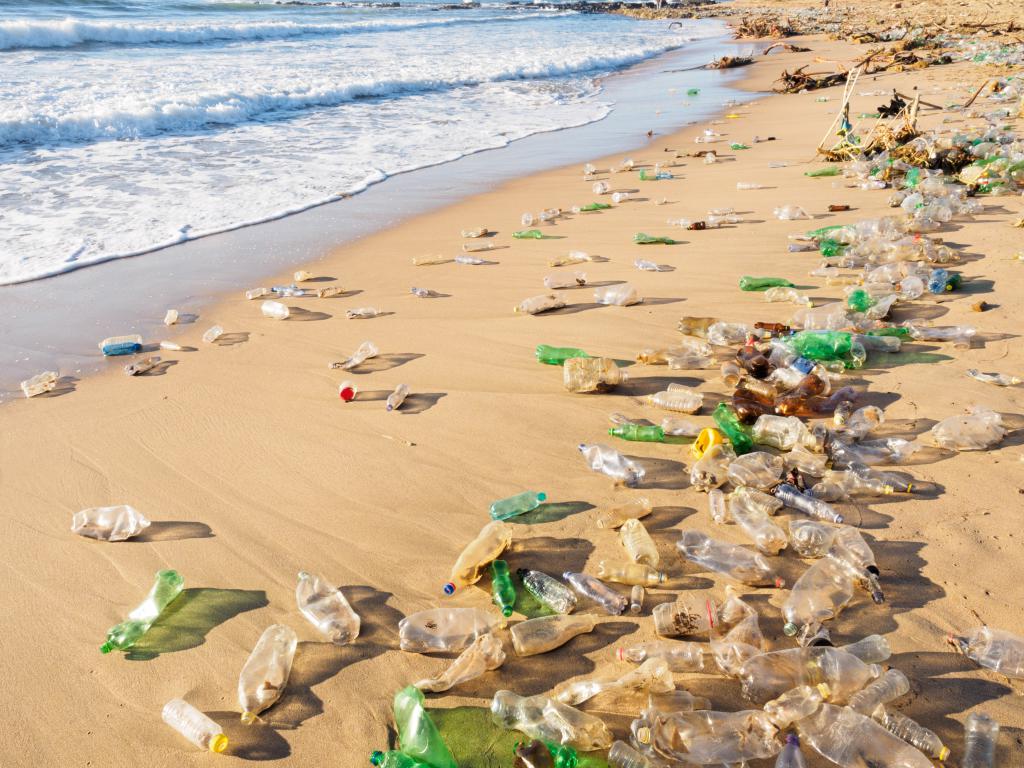UK economy growing at the fastest rate for 80 years, but how does increased consumerism contribute to the growing plastic waste crisis?

It has been reported by leading economic forecaster, the EY Item Club, that the UK’s economy is growing at its fastest pace in 80 years and could in fact recover its pre-pandemic size by the end of the year. Facilitated by the vaccine rollout and a bounce back in spending, consumers are buying more than ever, which is massively helping the economy, but at what cost to the environment?
As it stands, per capita, the UK produces more electronic waste than any other country in the world, apart from Norway. Lupe Technology, a vacuum cleaner start up designed by a former Dyson engineer, is well aware of the cost creating new things has on the planet. Indeed, the UK’s leading recyclable vacuum cleaner has been founded on the premise of deconstructing the built to break nature of domestic goods, and has commissioned a ground breaking study on just how much damage the domestic appliance sector inflicts.
Despite the fact that 45% would happily pay an extra 25% more for a domestic appliance that is greener and more energy efficient and lasts longer, the data has found that 1 in 10 Brits have been through a minimum of 15 vacuum cleaners in their life, amounting to a staggering 58,635,000 units, with almost a fifth agreeing that their vacuum cleaner is the most built to break appliance in their house, amongst a myriad of other household goods. This research has demonstrated the overwhelming disconnect between consumer intent and product availability, unveiling a disconcerting issue within the white goods sector which needs to be addressed in order to reduce further harmful impact on our planet.
In fact, the study has further shown this problem does not just pertain to vacuum cleaners, but to all domestic goods. Kettles have been found to be the quickest to break appliance by 33% of the nation, followed by toasters (13%), hairdryers (12%) and vacuum cleaners (12%). When asked what the easiest to replace appliances were, kettles came up top again with 45% of the nation agreeing, followed by electric toothbrushes (16%), hairdryers (14%) and toasters (13%).
Key Stats*
Within the research, 2096 respondents, were asked which home appliance they found to be the quickest to break and easiest to replace, with the findings as follows:

Furthermore, respondents were also asked specifically an array of statements pertaining to the provision of vacuum cleaners, and the ways in which they have experienced a never-ending cycle of breakages.
- 39% (13,883,000) agree that the hardware breaking on their vacuum, and the parts being irreplaceable, is the primary reason as to why they need to replace it
- 36% (14,881,000) agree that the suction power of their vacuum cleaner has noticeably decreased over time and is the primary reason they’ve had to replace it
- 1 in 10 (3,909,000) agree that in their adult life, they’ve been through a minimum of 15 vacuum cleaners
- 19% (6,915,000) agree that their vacuum cleaner is their most built to break appliance in their house
- 15% (6,503,000) agree that they buy cheap vacuum cleaners and find that they have had to replace them multiple times in their life time
- 12% (4,668,000) agree that their vacuum cleaner is the quickest to break appliance in their home with just 3% (1,466,000) agreeing that it is the easiest to replace
- 45% (21,794,000) would happily pay an extra 25% more for a domestic appliance that is greener and more energy efficient and lasts longer
*(nationally representative research carried out across a body of 2096 respondents, in full compliance with the British Polling Council Guidelines)
In response to the sheer quantity of domestic appliances across the world being discarded into landfill, British start-up Lupe Technology, devised by former Dyson engineer Pablo Montero, is challenging the status quo of popular consumer goods by creating a premium product developed to be a vacuum-cleaner for life.
Other vacuum cleaners may use thinner plastic which is welded together instead of using bolts to reduce price and weight but these are then more easily broken and irreplaceable, forcing consumers to throw the model away and purchase even more single use plastic. Lupe’s Pure Cordless vacuum, however, is crafted from recyclable plastic and delivers high performance whilst far outliving the expected shelf-life for typical household appliances. In the unlikely event a part does break, each individual small part of Lupe’s product has been designed to be fully removable, recyclable and replaceable.
Pablo Montero, Co-Founder of Lupe Technology, comments on the culture of domestic appliances that are built to break:
“The public conscience of climate change, pollution and excess household wastage has undoubtedly increased in recent years, and has motivated consumers worldwide to seek more sustainable and ethical products. Yet despite all our good intentions, we are hamstrung by a trend of built-to-break gadgets and household appliances, which is contributing to an appalling amount of plastic pollution and electrical wastage in Britain.
The Pure Cordless is the domestic appliance designed not just to shake-up the vacuum market but the entire home technology arena. We have strived to make a product as reliable and long-lasting as possible and hope consumers understand our mission to make technology stand the test of time.
When designing the Pure Cordless, we had two core values; class-leading performance and longevity. The launch has represented the realisation of this and six years of hard work to make the best possible cordless vacuum available today while thinking about our environmental footprint. This is a product that has been designed to change our attitudes towards consumable electronics and home appliances.”




